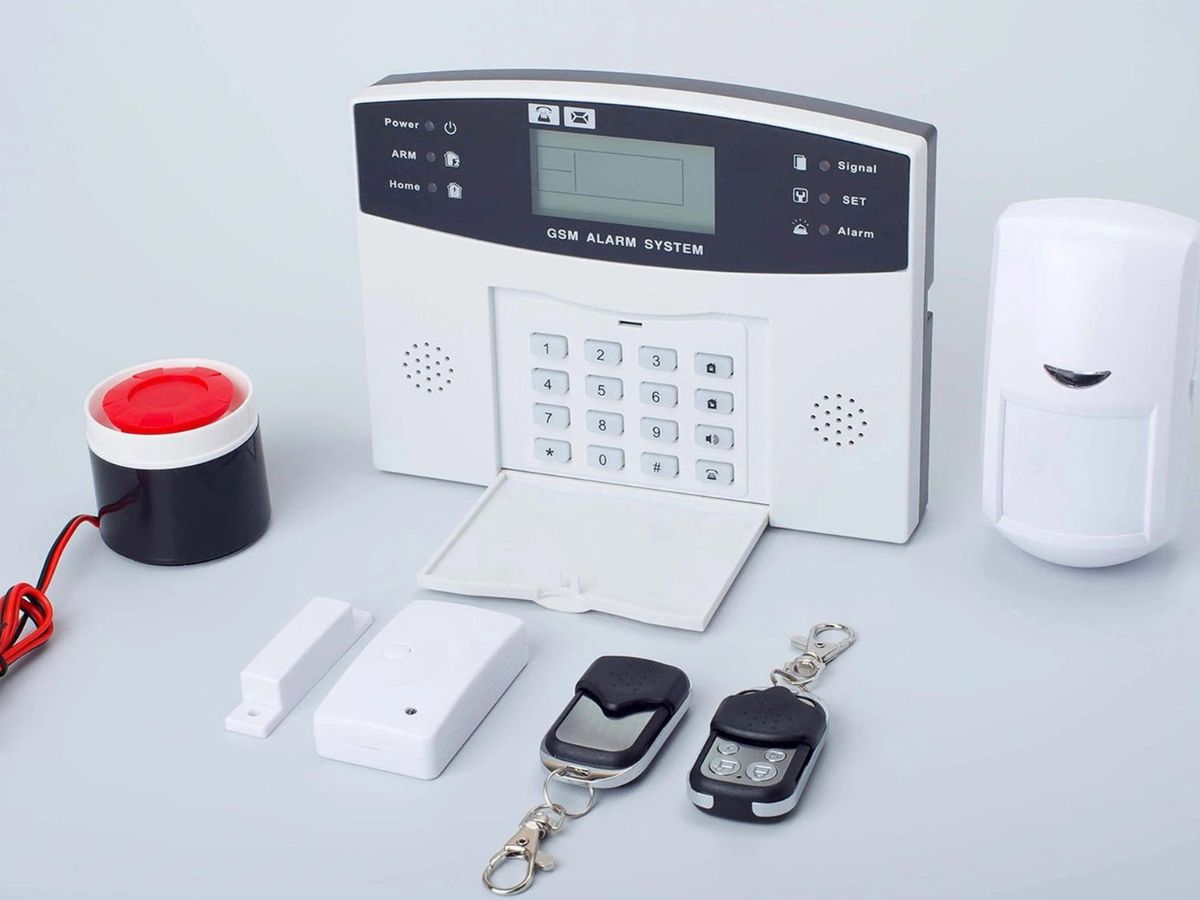
Extreme weather, both cold and hot, can have decisive effects on the efficacy of burglar alarm systems. Batteries may discharge even faster in such low temperatures, which will then decrease system reliability. In addition, the cold can cause the materials to become brittle and break also any components. But this contrary can put the system’s electronics at overheating risk, and it may shut down or fail. Heat can bring trouble to the reliability of sensor devices by giving out false alarms or by affecting their real sense in detecting an intruder. Thus, considerations of temperature tolerance should be one of the factors in alarm system design with burglar alarm repairs Oldham to make sure that they will work correctly under the weather conditions they will later face.
Humidity and Electronic Components
High humidity levels can cause a failure in the electronics of burglar alarm. Moisture in the air condenses on the circuitry that does not only cause a short circuit but may also disrupt the system either temporarily or permanently. In time, humidity can have the opposite effect by gradually corroding metal parts and electronic boards, thus reducing overall system performance. It is especially a problem in places with a lot of moisture, such as in locations with high humidity levels or in basements or bathrooms where moisture levels are higher. Preventive maintenance and the use of air dehumidifiers/replacement moisture barriers can minimize these risks and guarantee the alarm system’s proper and effective functioning.
Wind and False Alarms
Winds of the desired strength would often lead to false reports in motion-powered intrusion alarm systems. The swinging of the branches, the movement of the debris, or even the shaking of the building itself is enough to trigger motion detectors. The false alarms alerted by the trigger may be annoying and waste a lot of money. The unintended false alarms not only cost the homeowners and workplace security personnel time but also cause complacency in the system, which results in a reduction in the effectiveness of the alarm system over time. To counteract this issue, the sensitivity of motion sensors can be adjusted, or motion sensors can be purposely positioned in a strategic direction, which significantly reduces the influence of wind. Furthermore, sensors that require the calling of one trigger in order to trigger an alarm can help eliminate false positives caused by wind.
Rain and Water Damage
In that case, heavy rain may bring water into the outdoor sections of burglar alarm systems such as cameras, motion sensors, and casing wires. Water can be conductive, thus spoiling infrastructure and creating erratic occurrences. Furthermore, water damage can be insidious since there are issues that when unnoticed, have the potential of destroying components over time.
Lightning strikes and power surges
Lightning strikes pose a major threat to burglar alarm systems since they commonly damage power lines carrying electricity, which is required for these systems to function properly. A building hit by lightning can conduct electrical energy through its wirings and pipes, which in turn causes a rapid increase of the electric current in the building. These rises, if they occur, may cause a lot of damage to the electronic parts sensitive to the alarm system, for example, sensors, control panels, and cameras. The high current can overload the circuits, burn the components, and cause total system failure. To control the risks from these events, we recommend the use of surge protectors and lightning arrestors that make the system divert the excess energy away from it and, in that way, protect the alarm system from possible damage caused by these unpredictable natural events.
Snow and Ice Accumulation
In wintery areas with snow and ice, buildup can seriously reduce the working parameters of outdoor burglar alarm parts. Snow and ice cover physical sensor elements along with cameras. Thus, it can warp and hinder the sensors from perceiving an intruder. Also, the weight of snow and ice can flex outdoor fixtures, such as motoring brackets and housings, which can finally damage permanent systems. In order to avoid those issues, it is necessary to regularly clean snow and ice off these instruments and consider the spots where outdoor sensors would better work never to be covered with snow. Additionally, covering them with covers that resist weather lets protects these parts against bad weather to some extent.
Dust and Airborne Particles
The presence of these substances in the air is known to be detrimental to the proper functioning of burglar alarm systems, especially in areas of arid climates or industry. These particles are able to cling to the sensors and camera lenses, which in turn affects their performance and even produces misleading signals in some cases. As an example, the generation of dust on a motion sensor can disrupt its infrared detection process while the sand particles can quickly damage and obstruct traditional video lenses, leading to reduced image quality. Frequent cleaning and maintenance are equally essential to guarantee operational and reliability. Installation of air purifiers or dust filter systems in air vents can significantly reduce the amount of contaminants in the atmosphere.
Maintenance Tips for Sealing Alarms against the Effects of Weather
Weathering the alarm systems can be achieved by preventive maintenance and effective planning. Regular inspections are instrumental in the identification and correction of the flawed areas that would later on cause the system failure. These inspections will be done by checking the presence of obvious signs of wear and tear, with special attention to the integrity of protective casings.
I’m Lilly Crawford, a skilled business expert who’s great at making successful plans. I’ve learned a lot from working at Arrow Redstar and Hi Property in the UK, gaining loads of knowledge about sales and how businesses work. I also write helpful articles about business strategies, using what I know to explain things well. I studied Business Studies in college and love sharing useful ideas to help businesses grow.